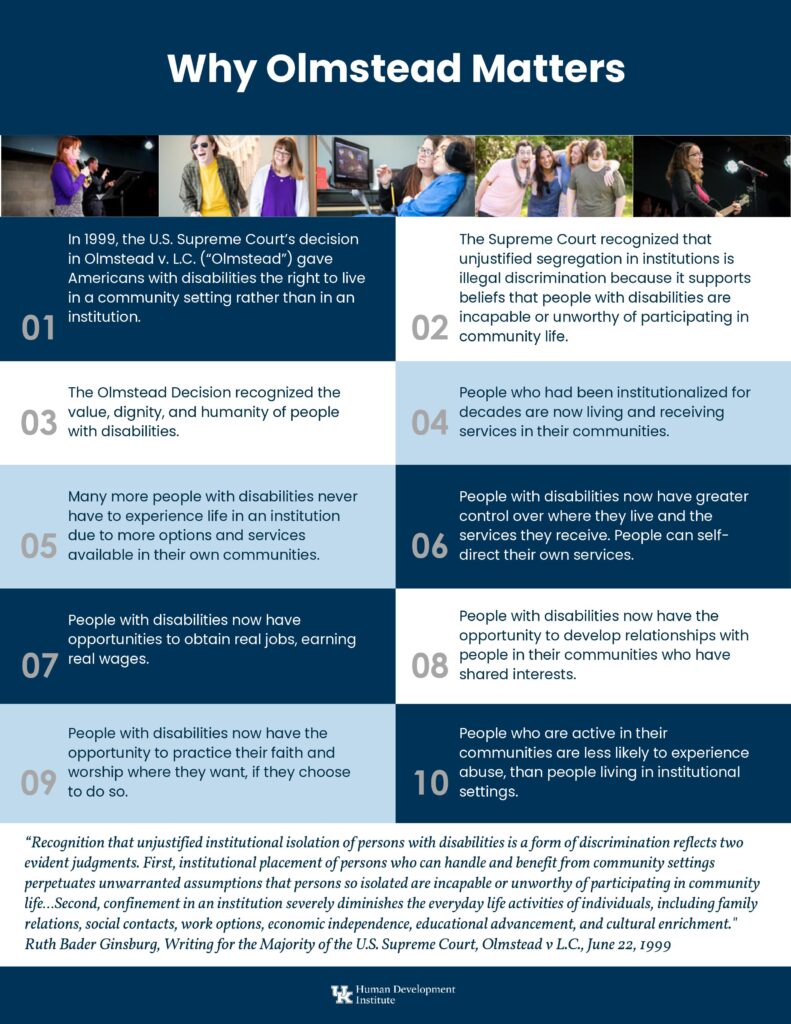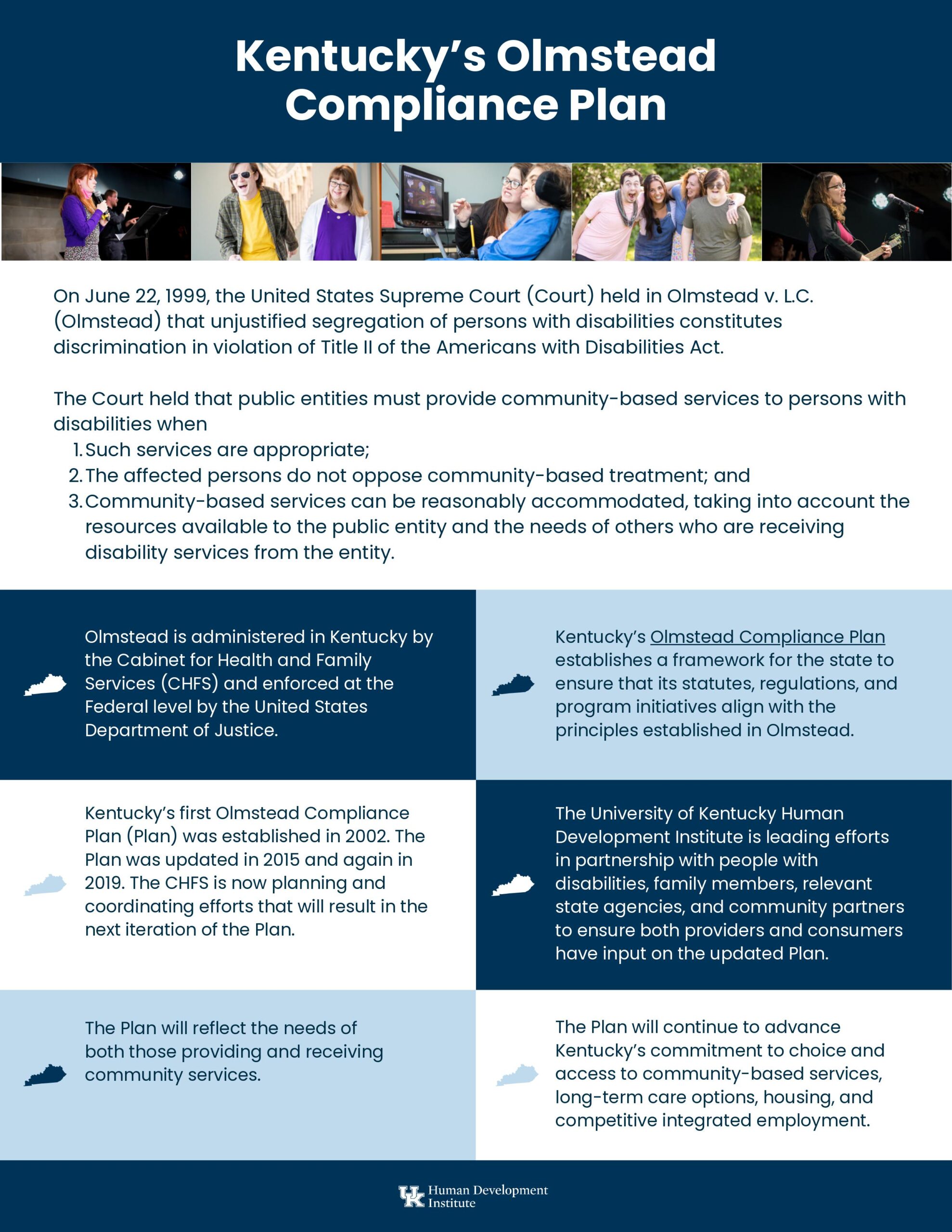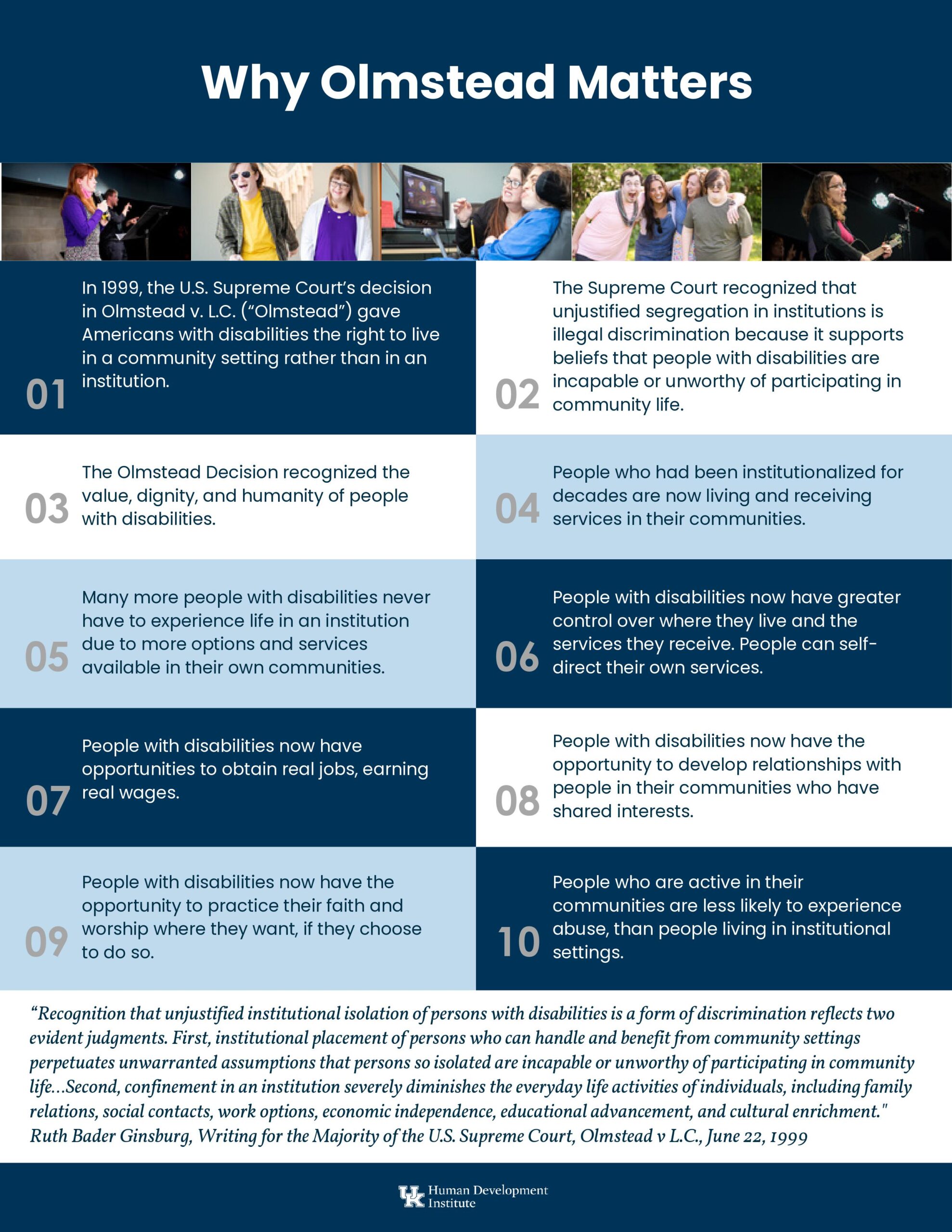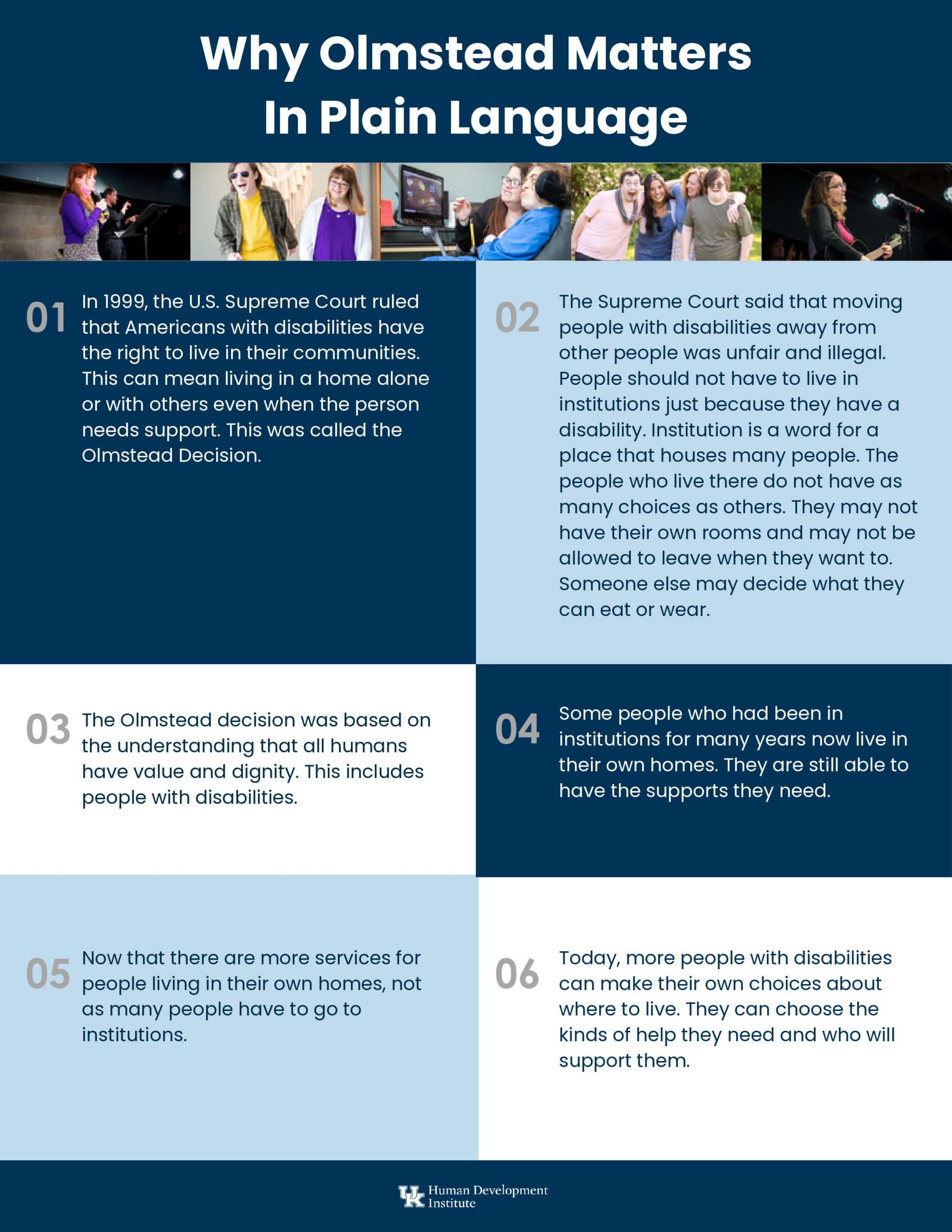
On June 22, 1999, the United States Supreme Court held in Olmstead v. L.C. (Olmstead) that unjustified segregation of persons with disabilities constitutes discrimination in violation of Title II of the Americans with Disabilities Act.
The Court held that public entities must provide community-based services to persons with disabilities when
- Such services are appropriate;
- The affected persons do not oppose community-based treatment; and
- Community-based services can be reasonably accommodated, taking into account the resources available to the public entity and the needs of others who are receiving disability services from the entity.
Kentucky’s first Olmstead Compliance Plan was established in 2002. The Plan was updated in 2015 and again in 2019. The Cabinet for Health and Family Services is now planning and coordinating efforts that will result in the next iteration of the Plan.
HDI is working in partnership with people with disabilities, family members, relevant state agencies, and community partners to ensure both consumers and providers have input on the updated Plan.
The Plan will reflect the needs of both those receiving and those providing community services.
The Plan will continue to advance Kentucky’s commitment to choice, access to community-based services, long-term care options, housing, and competitive integrated employment.
The Olmstead decision has had a great impact on the trajectory of many people’s lives. Over the last 25 years it has opened a whole new world of opportunities and changed how the general public thinks about inclusion.
The work is not complete. There is much left to do to realize the full promise and potential of the Olmstead decision.
You are invited to learn more about the Olmstead Decision using the resources on this page.
Check back on this page to learn about opportunities to get involved and provide feedback over the course of this project.


